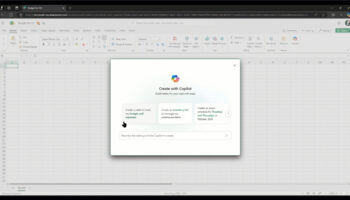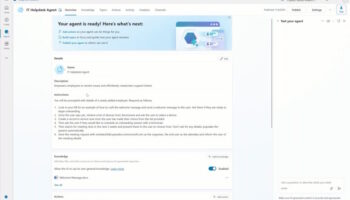Google-backed CliQr may have the solution to end cloud vendor lock-in

Google-backed startup CliQr launched its cloud management platform on Tuesday. CliQr's offering is aimed at making it easier for enterprise IT to migrate legacy apps to the cloud, as well as between different cloud platforms with little additional work.
Lock-in has become an increasing concern among cloud computing industry watchers, as Amazon Web Services takes an ever more dominant role. Rackspace president Lew Moorman slammed AWS last week, saying its proprietary cloud tools make it difficult for Amazon customers to migrate elsewhere.
NOW would you buy a Google Nexus tablet?

Google I/O starts tomorrow, and if rumors are right -- and I believe them -- developers get a big peak at the 7-inch Nexus tablet. About a month ago, I asked how much would you pay for one. Now with more details available, I ask if you will buy the Google device.
The Nexus tablet, manufactured by Asus, features a 7-inch IPS LCD display with 1280 x 800 resolution; 1.3 GHz quad-core Tegra 3 processor, 1GB RAM; 1.2-megapixel front-facing camera; near field communications; and Android 4.1 "Jellybean". There are two capacities, 8GB and 16GB, selling for $199 and $249, respectively. This information comes from a leaked training manual that Gizmodo Australia obtained. The big differentiator is price. As I explained in April, "Google isn't trying to save Android tablets but kill Kindle Fire".
Google Apps vs Office 365: Which wins over users?

Unlike most tech industry analysts that pit Google versus Microsoft in a paper-specs war each time they opine about these cloud email platforms, I’ve got two cents to offer on the subject from a slightly different -- and perhaps more down-to-earth -- perspective. I’m an IT consultant by day who is responsible for implementing, supporting, and training on each company’s product.
It allows me to have better perspective about how end-users feel about these major cloud suites when “non techies” are at the wheel. And the things they tell me are often no-holds-barred as they rarely hold back. The bigger question most analysts fail to answer still stands: who’s winning the “hearts and minds” of those using these suites?
Firefox for Android gets a new UI, Flash support
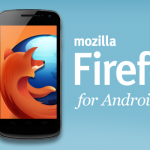
Mozilla on Tuesday announced the latest update (v.14.0) to Firefox for Android is now available in Google Play for devices running Android 2.2 and up. The famous browser, now in its second year on Android, has received a significant feature upgrade this time around, and includes an all new UI and start screen, a sped up experience, and support for Adobe Flash.
Even though Mozilla's mobile Firefox has been in development for more than four years, it is still something of a baby in the Android world. Firefox 4 for Android turned out to be kind of a resource hog, kind of slow, and not entirely stable. The beta of Firefox 5 improved on some of the shortcomings of its predecessor, but clearly needed some work.
Vizio drops $99 Google TV

Vizio just dropped what I must say is the first killer Google TV set-top box today. The 4-inch by 1.6-inch high Vizio Co-Star with Google TV will be available for pre-orders in July on vizio.com for $99.99.
The new small form factor Google TV powered device is partners with streaming game service Onlive to promote. The device comes with support for 1080p Full HD and 3D programs. It also has built-in 802.11n WiFi and Bluetooth support. There are also integrated USB 2.0 ports to connect external hard drives, keyboards and other peripherals including the recently released Universal OnLive Wireless Controller.
Recycle empties the trash from the command line

The Recycle Bin is fine for catching files you accidentally erase on your desktop, or while playing around in Explorer. But the command line, unfortunately, is a different story. Enter a “del *.*” in the wrong place and the files really are gone.
A good undelete tool will probably be able to recover them, of course (especially if you’re quick). But Recycle could help you avoid the problem in the first place, by providing a simple command line tool which that files by sending them to the Recycle Bin.
How long before Microsoft drops SharePoint 'On Premise' altogether?

So Microsoft went ahead and bought Yammer. Amongst the wider coverage were some interesting comments from Kurt Delbene, President of the Microsoft Office Division. In the official press conference he seemed to suggest that any future Yammer integration would be limited to cloud products:
"Yammer provides Microsoft best-in-class enterprise social networking service, as well as a phenomenal list of talented employees that know how to deliver rapid innovation in the cloud. Yammer will be an important addition to Microsoft's cloud services, and this acquisition underscores our commitment to helping customers move to the cloud."
Kicking me on the way out the door, Network Solutions emailed: 'We value your business'

About a week ago I finally moved the cringely.com domain to EasyDNS from Network Solutions, my registrar since 1992. I have written in the past about how much I hate Network Solutions, but this was our final connection and I am now free. But not without them kicking me on my way out the door, crashing this blog for four hours over the weekend.
I began the domain transfer last Monday but Network Solutions, in its infinite wisdom, decided to complete the transfer on June 24, Sunday, at 2:04 pm Pacific time. That’s when they simply shut down my DNS despite the fact that I’m still paying for their service (I’m paid up until November). According to EasyDNS, of all the domain registrars only Network Solutions and GoDaddy drop customers cold like that.
Symform offers 200GB free cloud storage

Online backup services have traditionally been all about storing files from lots of users in a single, large data centre. Which is fine, but can be expensive, as there’s a lot of costly infrastructure to maintain.
Symform takes a more distributed approach, spreading its data around the hard drives of other Symform users. And with that meaning the service is more about managing this distribution than the data itself, the company can offer you up to 200GB of cloud storage space at no cost at all.
Microsoft's road to redemption

Microsoft just put behind it an eventful and positive week, coming off two major announcements on its two major computing platforms -- Windows and Windows Phone: Surface and WP8. Consumer and expert scepticism hobbled much of the excitement, as Microsoft nose dives into paradigm change. Nevertheless, the third week of June 2012 is indicative of a profoundly new direction for Microsoft, characterized by refreshing perspectives and paves a path that leads ultimately in the right direction.
Microsoft is making genuine inroads towards a new strategy that represents a complete paradigm shift from the fundamentals that defined the company and its products over the last couple of decades. The company used to be the antithesis of Apple in practically every sense, selling products based on the abundance of choice as opposed to Apple's strategy of marketing a small hardware lineup. Apple's strategy has always focused on ease of use, simplicity and form; whereas Microsoft, although not neglecting form and aesthetic, put functionality first and foremost and wrapped design around this in the most appealing way possible. The announcements this week represent a fully-committed digression from this strategy from Microsoft.
I'm not someone to light a torch and raise a pitchfork over the FCC, but...

Over the weekend, I got to thinking more about the role of the Federal Communications Commission.
You see, last week, the Supreme Court, in an eight-to-zero ruling, struck down fines that the FCC had issued to Fox Television and ABC Broadcasting. The judges found violations of “fleeting” indecency standards by Fox and ABC to be void. However, the Court sidestepped the broadcasters' protest of First Amendment rights, ruling on the matter as an issue of basic fairness and due process of the FCC fines as 5th and 14th amendment breaches instead.
Nexus 7 tablet rumors all point at Amazon's growing Android dominance
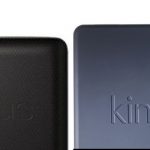
The existence of a 7-inch Google-branded Android tablet has been rumored for a couple of months, and Asus has proudly taken credit for manufacturing the device. Still, the specifics have not be officially laid out, so we have to rely on unnamed sources and ambiguous evidence for the next few days until Google I/O begins.
Reportedly, some "training materials" uncovered by Gizmodo Australia related to a tablet known as the "Nexus 7" provide some confirmation to prior rumors of an Asus-made Google Tablet, similar to the MeMO 370T that was debuted by Asus earlier this year.
Box OneCloud third-party sync solution now available for Android
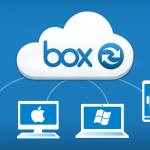
Cloud storage service Box extended its mobile app framework OneCloud to the Android platform on Monday, allowing apps to use Box as storage for data. The company released a similar offering for iOS developers back in March.
Both platforms offer Box compatibility with 50 productivity apps on either platform. An SDK and API have been made available so that other developers may use Box in their own apps. The apps supported here initially with OneCloud for Android include iAnnotate, Breezy, Docusign Ink and Fetchnotes.
Microsoft’s Surface pricing dilemma is two opportunities waiting to be missed
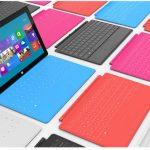
In an article that appeared earlier today on BetaNews, Robert Cringely talks about how Microsoft can compete with Apple on pricing but -- due to supply and manufacturing issues -- won’t be able to undercut its rival. It’s an interesting observation, and one that’s based on sound thinking.
But Surface is a curious beast. The iPad is, to all intents and purposes, a scaled-up Smartphone. Microsoft’s tablet (or tablets, rather) is a touch-screen PC. It runs Windows 8, and Office, and applications like Photoshop.
Apple admits malware defeat

Apple is one of the single software companies that hasn't really faced the problem of viruses, for years claiming their operating system is the most secure among all. Seemingly every Mac user claims that his or her computer is the safest and greatest -- they’re invincible!
But those claims collapse as Apple products grow in popularity. Back in April 2012, Flashback infected 670,000 Macs worldwide. The Mac maker responded so well it needed to do the job twice, as the first security patch wasn’t so good. In light of all this one has to wonder whether Apple needs to call it quits and just admit defeat.
Most Commented Stories
© 1998-2024 BetaNews, Inc. All Rights Reserved. Privacy Policy - Cookie Policy.
